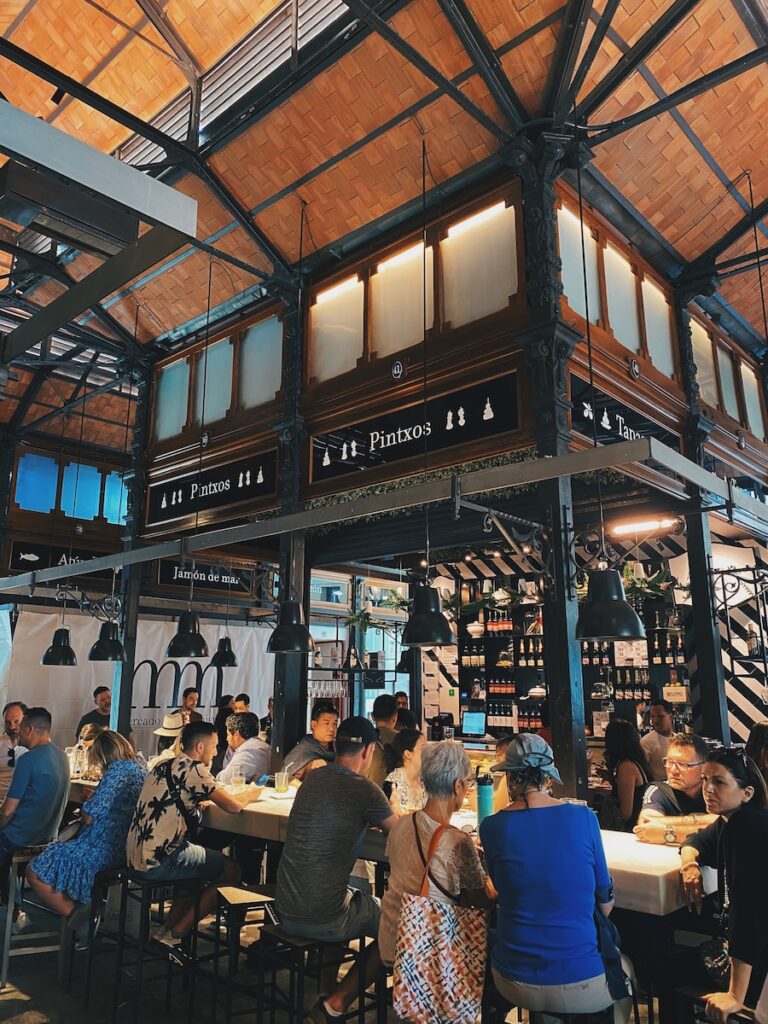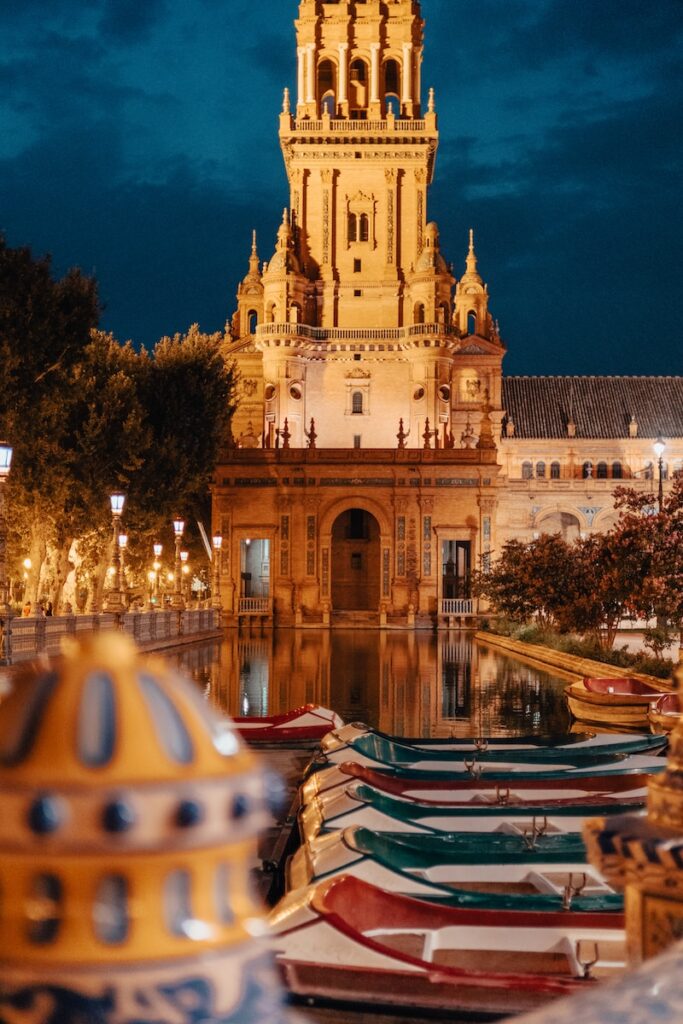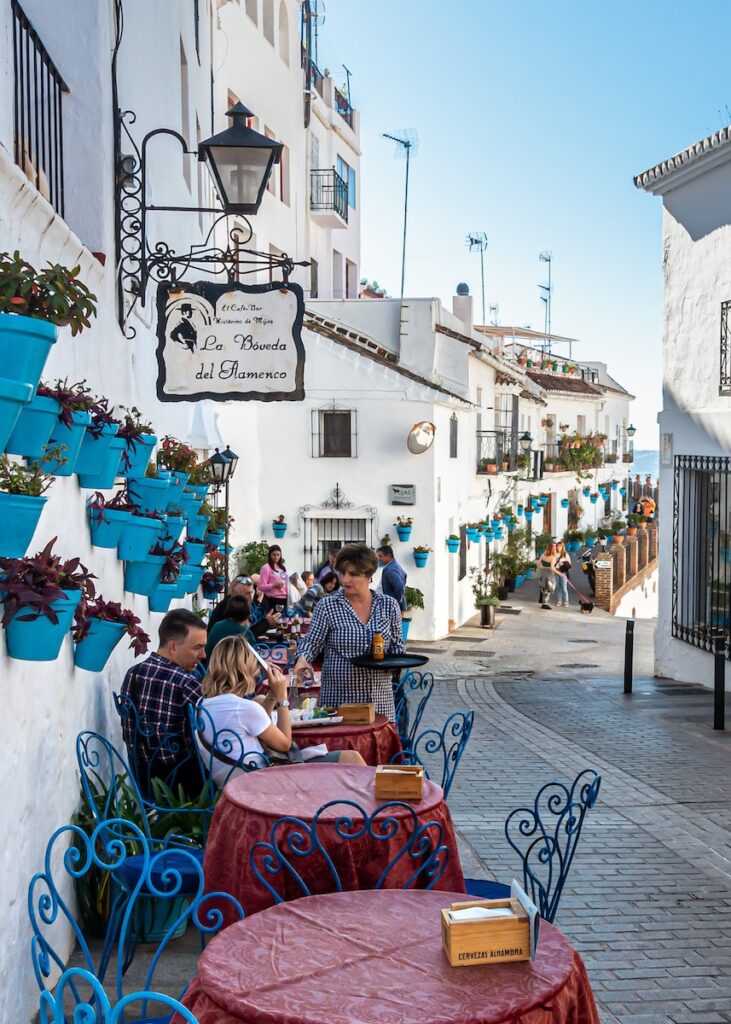Culture Shocks for New Expats in Spain
Coming up in this guide: speaking loudly, kissing people on the cheek, and big ol’ pools of olive oil.
You’re moving to Spain. And no matter where you’re from, things are going to be a bit different than they were back home. Food might be different. People might behave differently. Bureaucracy might throw you off. And day-to-day life (at first) might offer some unexpected challenges.
(Obviously, these culture shocks will depend on where you’re coming from. If, for example, you’re relocating to Spain from Portugal, your new life will probably feel pretty normal. But if you’re relocating from somewhere much further away, things might be pretty different).
Anyway, in this guide, we’ve unpacked some of the biggest culture shocks you might experience. Expect late-night living, the perils of finding a place to call home, and lots of references to laid-back life.
Today, Homelike are running through the 17 biggest culture shocks in Spain. And here’s some news: you’re coming with us. Vamos!
Nightlife Runs Late
If Spanish people are going out for the night, they’re really going out for the night.
Many bars are open until 4 a.m. Many nightclubs are open until 6 a.m. or later. People might not start drinking and partying until midnight.
So if you’re heading out for a big night out, expect to be wiped out for the entirety of the next day. Good news is, the nightlife is worth it.

Meal Sizes and Meal Times are… Different
From a certain perspective (that’s a non-Spanish perspective, obviously), Spanish meal sizes (and Spanish meal times) might seem a bit strange.
Breakfast is very small—eaten in a hurry, it’s usually made up of coffee or juice, with a small piece of toast, or a cake or cookie. Hardly the big elaborate filling breakfasts some cultures are accustomed to.
Lunch is the biggest meal of the day, often including more than one plate, and sometimes involving a dessert (and it’s usually eaten at around 3pm). Dinner is late in the day (sometimes eaten as late as 10pm or 10:30pm), and is often a pretty heavy meal.
Another common Spanish meal sits between lunch and dinner. Called ‘merienda,’ (which literally translates from Spanish into English as ‘snack’), it’s usually something sweet, like fruit, a cake, or a cookie. It’s typically eaten at around 6pm.
You’ll Need to Get an Address Pretty Quickly
When you get to Spain, you’ll need to apply for your empadronamiento.
The word ‘empadronamiento’ translates from Spanish into English as ‘census,’ and it’s basically just the official way of registering your presence in whichever place you’ve moved to.
But it’s also much more than that—you need to get your empadronamiento to get married, vote, obtain a work permit, buy a house, hire a car, get other important documents, and loads more bureaucratic stuff.
… and anyone who relocates to Spain long-term is legally obliged to go through the empadronamiento process.
This is all pretty normal, so you might be thinking ‘hey Homelike, what exactly is the culture shock here?’
Well, the process is a little flawed:
When you apply for your empadronamiento, you’ll need to provide proof of your current address (even if that address is only a short-term interim place). But some short-term rentals sometimes don’t want you to use their address for your empadronamiento… and this is where things get complicated. Without this address, you won’t be able to get your empadronamiento. And without your empadronamiento, you won’t be able to live in Spain long-term.
To get around that problem, you can rent a short-term place from a company specializing in relocations (like us!). This’ll make getting your empadronamiento much more stress-free and simple… and it’ll therefore make your long-term life in Spain much more stress-free and simple.
Note: you only need to apply for your empadronamiento if you’ll be in one town or city for 6 months or more. So if you’re only sticking around for a short while, you don’t need to worry about this one.
Greetings Are Open and Warm
Spanish greetings are pretty informal.
When women meet women, they plant a quick kiss* on each cheek. When men meet women, it’s exactly the same. When men meet men, a handshake is usually the go-to.
This might seem a bit familiar and over-friendly to you, but you’ll soon get used to it. And as you’ll learn, it’s a nice ice-breaker for avoiding awkwardness.
Note: in business settings, handshakes are the norm. So don’t expect to go kissing everyone in a boardroom meeting.
*Note 2: when we say ‘kiss,’ it’s not really a kiss. Instead, it’s touching cheeks while making a light kissing sound.

Proximity and Personal Space
Similar to the above!
In Spain, people stand close to one another. You don’t get much personal space. Strangers will greet you like an old friend. Compliments are thrown around constantly.
Obviously, this is all just friendliness. But if you’re not accustomed to it, this overt familiarity might make you feel uncomfortable at first…
… and if you’re from somewhere like Japan or parts of northern Europe, this might be one of your biggest culture shocks in Spain.
Spanish Cities May Seem Noisy…
So, if you’re new to Spain, you might find it a bit louder than what you’re used to back home. Spaniards love a good chat, and they’re not shy about sharing their laughter or their favorite tunes with the world.
And, yep, even phone conversations can get pretty lively here. But don’t worry, it’s all part of the local charm. At first, it might catch you off guard, but give it some time. You might just find yourself falling in love with the buzz and energy that’s so uniquely Spanish.
… and Communication can be Loud
When you’re new to Spain, it may feel like everyone’s yelling. But guess what? They’re not.
See, Spaniards just have a more vibrant way of expressing themselves. They’re loud, they’re animated, and their conversations can feel like a mini-drama unfolding right before your eyes. It’s all part of their charm.
Now, you might mistake this for being abrupt or even rude. But trust us, it’s not. Spanish folks are pretty chill when it comes to handling negative vibes. There’s little road rage, you won’t see any fighting on the street, and the vast majority of local folk are polite and courteous.
Finding a Place to Live is Tough
One of the biggest culture shocks in Spain, and one of the biggest barriers to starting a new life in Spain.
In the nation’s bigger cities, finding a nice place to live can be a big challenge. Like, a really big challenge. The best properties get snapped up quickly, and even the subpar places have lengthy lists of people waiting to view them. On top of that, locals who speak Spanish have a head start on foreigners who don’t.
Other complications: some places are unfurnished, some apartments aren’t quite what landlords claim, and many of the remaining options are far from the centers of cities.
This issue can be sidestepped by opting for a Homelike rental in cities like Barcelona, Madrid, Valencia and Seville. We offer cozy places similar to airbnb, such as fully furnished serviced apartments and flats, and you won’t have to deal with any headaches. Our booking process is simple and straightforward.
If you choose a serviced option (like all the apartments on our site!), you can move with no stress and no hassle… and you don’t need to worry about sourcing furniture, being scammed, or having an uncomfortable place to live.

You’ll Need to Adapt to the Language
It probably won’t surprise you that everyone in Spain speaks Spanish.
But it might surprise you that a very large portion of people (understandably!) don’t speak English. Sure, lots of younger people speak English in bigger cities. But most 40+ people don’t, and young people outside of larger cities might not.
So we recommend learning some Spanish (and if you can speak English—which you definitely can you since you’re reading this—it’s pretty easy to learn).
To get started, Duolingo is an excellent option, and turns language learning into a big fun game. When you’re ready to push on a bit, Babbel and Rosetta Stone are good choices—while Preply and Lingoda offer face-to-face lessons with actual people.
And of course, on top of all that, you’ll be able to find in-person lessons (both solo classes and group classes) in whichever city you move to.
Note: even if most people around you can speak English (whether they’re locals or other foreigners), it’s best for long-term expats to learn Spanish anyway. It’s polite, people will respect your efforts, you’ll be able to make more friends, and the bureaucratic side of life will become a lot easier.
You’ll Eat Lots of Olive Oil
This is one of the biggest food-based culture shocks in Spain.
You probably already know Spanish people love olive oil. But you probably don’t know quite how much they love olive oil. You’ll find it drizzled on EVERYTHING. Breads, salads, pizzas, snacks, tapas. If you can eat it, Spanish restaurants will put olive oil on it.
Yep, olive oil is healthy, and it’s usually tasty. But some people tire of it over time. If you fit into that category, you’ll just have to cook at home more often. Fun fact: Spain produces more than 40% of the world’s entire supply of olive oil each year. Told you they love the stuff.
There’s a Slow Pace of Life
Some expats in Spain love this; some expats in Spain find it frustrating.
But compared to lots of nearby nations, Spain’s pace of life is very slow.
People walk slowly on the sidewalk. People spend a long time chatting to each other on the street. People spend a while grocery shopping, choosing their products carefully instead of just rushing through. Things aren’t open at all hours. And no matter what time of day you’re wandering around, you’ll see people sharing food, beer, and coffee.
And this is all because Spanish people (justifiably!) like to prioritize pleasure. Although traditional siesta culture is largely dead, Spanish people still like to place a firm focus on enjoying life. while working hard at the same time.
Interestingly, this slow pace of life (coupled with healthy lifestyle choices) has made Spain one of the healthiest countries in the world. This article has combined various rankings to rate health and well being across the planet, including “elements such as diet, happiness and mental well being”… and Spain has nabbed the #1 spot. So they’re definitely doing something right!

Timetables Can Be Unusual
Although this practice is relatively rarer nowadays, some Spanish stores close in the afternoon, shutting down between the hours of around 2pm and 5pm (before then opening again later in the day).
Some banks close at around 2pm, not to reopen again until the next day.
Other public services might also close at 2pm, and not reopen again until the next day.
This can vary according to where you live. In bigger cities, places might have longer opening hours. In smaller towns and villages, traditional timings should be expected.
But the bottom line (literally) is this: you shouldn’t assume lengthy opening hours, and you should always check in advance.
Supermarket Sundays
… and to add to the above, many stores and shops are closed on Sundays. Some of the chain supermarkets might remain open, but with shorter opening hours.
So if you’re expecting to easily get all your shopping done on a Sunday, you might be surprised.
Wages Can Be Surprisingly Low
If you’re getting a job in the nation, this’ll be one of your biggest culture shocks in Spain.
Though wages here aren’t low compared to most parts of the world, they are low compared to most other parts of western Europe (and many other parts of the EU).
As of 2022, the average Spanish salary was around €27,000 per year. According to this research, the average Spanish salary is almost 50% lower than the average salary in Germany, and around 66% of the average salary in France.
But it’s not all bad news: the Spanish cost of living is lower than most other parts of western Europe. So your money will stretch further.
Culture Shocks in Spain: Final Thoughts
There they are—all the biggest culture shocks in Spain!
As you’ve probably noticed, none of these examples are very alarming. So you’ll likely slip into your new life quickly and easily, without much hassle.
That said (as we’ve already mentioned), some of the biggest Spanish struggles are related to finding a place to live. To avoid all that fuss and stress, your easiest option (at least in the short term) is moving into a serviced apartment or a serviced flat. You won’t need to deal with landlords, you won’t have any language barriers, and you won’t wind up living somewhere you don’t like.
All of our serviced apartments are comfortable and cozy, they’re all perfect for both working and living, and they’re all ready to move into today.
For more on moving to Spain, check out our guides on the Golden Visa, retiring in Spain, and the best places to live in Spain. And for the Brits among you, here’s everything you need to know about moving to Spain after Brexit.
Thanks for reading, thanks for choosing Homelike, and have an incredible time in Spain. Hasta la vista!






















